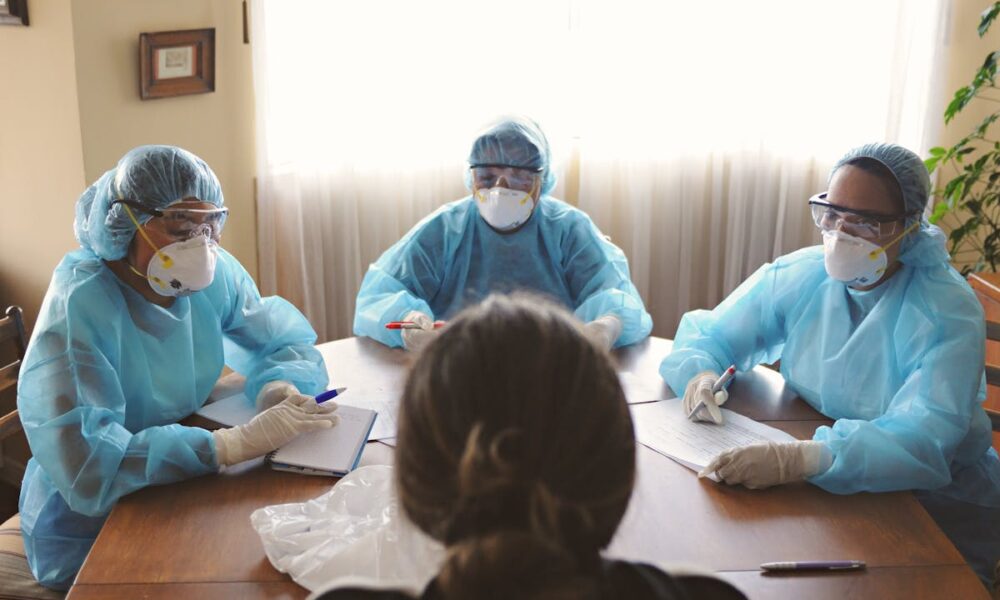Online TRT Clinic Offering Remote Consultations, Hormone Testing, and Ongoing Care

Testosterone replacement therapy (TRT) has become a critical option for individuals experiencing low testosterone and its associated symptoms, such as fatigue, reduced muscle strength, mood changes, and diminished libido. With advances in telemedicine and digital healthcare platforms, online trt clinic now provide a more convenient, accessible, and discreet way to receive treatment. By combining remote consultations, hormone testing, and ongoing care, these clinics are reshaping the way patients access hormone therapy.
This article explores how online TRT clinics operate, what patients can expect, the benefits and costs involved, and the importance of medical oversight in long-term therapy.
The Growth of Online TRT Clinics
In recent years, the rise of telemedicine has opened new possibilities for delivering healthcare. Online TRT clinics have emerged as a response to growing demand for accessible hormone treatment. Instead of requiring multiple in-person visits, patients can now undergo most of the process—consultations, prescriptions, and follow-ups—through secure digital platforms.
The convenience of this model is especially valuable for individuals with busy schedules, those living in remote areas, or patients seeking privacy while addressing personal health concerns. Online TRT clinics integrate technology and healthcare expertise to provide an experience that is both patient-focused and efficient.
Initial Consultation and Assessment
The first step in any TRT program begins with a medical evaluation. In an online clinic setting, this typically involves a virtual consultation conducted through a secure video platform. Patients provide information about their medical history, symptoms, and lifestyle.
During this process, the clinician may ask about sleep patterns, sexual health, mood changes, and physical performance. This information, combined with lab results, helps determine whether low testosterone is present and whether TRT is an appropriate treatment.
Hormone Testing and Lab Work
Hormone testing is an essential part of TRT evaluation. Online clinics generally partner with local laboratories or offer at-home testing kits that allow patients to provide blood samples conveniently.
These tests measure testosterone levels and may also include other health markers, such as:
- Estradiol
- Hematocrit
- Liver function
- Cholesterol levels
- Prostate-specific antigen (PSA)
The results provide clinicians with a complete picture of the patient’s hormone balance and overall health. Only after reviewing lab data can a safe and personalized TRT plan be developed.
Developing a Personalized TRT Plan
Once testing confirms low testosterone, the next step is designing a treatment plan tailored to the individual’s needs. Online TRT clinics typically offer several options for therapy, including:
- Injectable testosterone, often self-administered at home.
- Transdermal gels or creams applied daily.
- Patches designed for steady hormone absorption.
- Pellet implants inserted during a minor procedure at a partner clinic.
The choice depends on patient preference, medical history, and cost considerations. Clinicians also set the dosage and schedule, monitoring progress to ensure that treatment remains effective and safe.
Remote Prescriptions and Reliable Delivery
After a plan is created, the prescription is filled through licensed pharmacies. One of the greatest advantages of online TRT clinics is direct-to-door delivery of medication. Reliable delivery services ensure patients receive their prescriptions promptly, reducing interruptions in therapy.
Most providers offer discreet packaging and tracking, adding another layer of convenience and privacy. Patients no longer need to visit a pharmacy each month; instead, they receive treatment at home.
Ongoing Care and Follow-Up
TRT is not a one-time treatment—it requires consistent monitoring and adjustments over time. Online clinics schedule follow-up appointments through telemedicine platforms, allowing clinicians to track progress, assess side effects, and review lab results.
Follow-up care may include:
- Adjustments to dosage or form of testosterone.
- Repeat hormone testing every few months.
- Monitoring of red blood cell counts, cholesterol, and prostate health.
- Evaluation of symptom improvement and overall well-being.
This ongoing care ensures therapy remains effective while minimizing risks associated with hormone treatment.
Benefits of Online TRT Clinics
The online model provides several advantages that set it apart from traditional in-person clinics:
- Convenience: Consultations, prescriptions, and monitoring are conducted from home.
- Accessibility: Patients in rural or underserved areas can access expert care without traveling.
- Privacy: Many individuals value the discretion of online appointments and home delivery.
- Efficiency: Faster scheduling and less time spent commuting make treatment easier to manage.
- Comprehensive Care: Clinics integrate testing, prescriptions, and follow-ups into a single service model.
Costs and Financial Considerations
Costs for TRT can vary depending on the clinic, treatment type, and whether insurance covers part of the therapy. On average, patients should budget for:
- Initial consultation and assessment fees.
- Lab testing, which may range from $50 to $200 depending on scope.
- Monthly medication costs, which can range from $100 to $500 depending on delivery method.
- Ongoing follow-up consultations, sometimes included in package pricing.
Some online TRT clinics offer bundled packages that include lab testing, consultations, and medication for a flat monthly fee. This approach makes expenses more predictable for patients planning long-term therapy.
Risks of Unsupervised Testosterone Use
While online access to TRT is convenient, it is important to recognize the dangers of unsupervised or unregulated use. Obtaining testosterone without a prescription, or using unverified online sources, can lead to serious complications such as:
- Excessive red blood cell counts (increasing risk of blood clots).
- Hormonal imbalances affecting mood and energy.
- Liver strain from unregulated formulations.
- Potential negative effects on fertility.
Working with a licensed online clinic ensures that treatment is medically supervised and based on accurate diagnostic testing.
Commitment to Long-Term Care
TRT is often a long-term or lifelong treatment, requiring ongoing attention to maintain safety and effectiveness. Patients should be prepared for:
- Regular lab tests to confirm hormone balance.
- Periodic adjustments to dosage or delivery method.
- Continued communication with healthcare providers.
- Budgeting for consistent monthly costs.
Patients who commit to this process often report improved quality of life, including better energy levels, improved physical performance, and enhanced mental focus.
Lifestyle Factors Supporting TRT
In addition to medical therapy, lifestyle adjustments can enhance the benefits of TRT. Online clinics often provide guidance in areas such as:
- Nutrition: Eating a balanced diet rich in protein, healthy fats, and essential vitamins.
- Exercise: Incorporating strength training and cardiovascular activity to boost overall health.
- Sleep: Ensuring consistent, restorative sleep for hormone regulation.
- Stress management: Using techniques such as mindfulness, yoga, or counseling to support emotional well-being.
By combining medical treatment with healthy lifestyle practices, patients can achieve optimal results.
Why Patients Choose Online TRT Clinics
The decision to pursue treatment through an online clinic is often motivated by convenience and accessibility. However, patients also value the structured, professional oversight that ensures safe and effective therapy. With technology enabling seamless communication between patients and providers, online TRT clinics are proving to be a reliable alternative to traditional care.
Conclusion
Online TRT clinics represent a significant advancement in how hormone therapy is delivered. Through remote consultations, accessible hormone testing, and comprehensive ongoing care, these clinics provide patients with safe, convenient, and effective access to treatment.
By combining professional medical oversight with modern telemedicine tools, online TRT clinics allow individuals to restore hormonal balance without sacrificing time, privacy, or convenience. For many, this model has become the preferred way to begin and maintain testosterone replacement therapy, ensuring both safety and long-term success.

Source: Online TRT Clinic Offering Remote Consultations, Hormone Testing, and Ongoing Care




